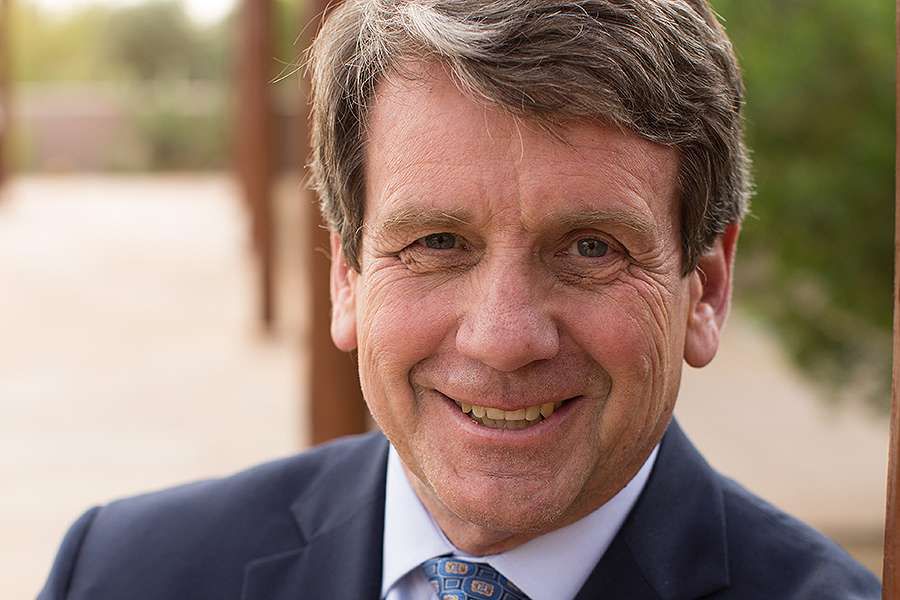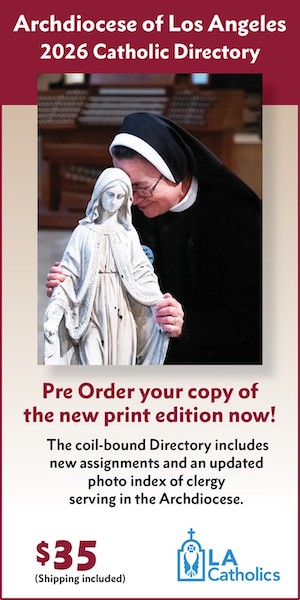Scottsdale, Ariz., Jan 28, 2017 / 04:15 pm (CNA/EWTN News).- For Michael P. Farris, the new head of Alliance Defending Freedom, educating the general American public on the rich history of religious liberty in the U.S. is vital.
As a nation, he told CNA, “I think we have a very limited understanding of religious freedom.” Religious liberty is the foundation for free speech, free press, and free assembly, he continued. Protections for many of the key freedoms enshrined in the First Amendment to the U.S. Constitution were secured through the battle for religious freedom. So when people start forgetting the vital role of religious freedom, they lose a firm grasp of these other freedoms as well.
“This is why we see free speech going in the wrong direction in a whole variety of areas,” he said, pointing to college campuses as an example.
Education is a topic close to the heart of Farris. Recognized as a leader within the modern homeschooling movement, he became the founding president of the Home School Legal Defense Association in 1983. In 2000, he founded Patrick Henry College in northern Virginia, based on a commitment to Christian biblical truth and classical liberal arts. He taught constitutional law and public international law at the school, and he coached students on the Moot Court team to a World Championship. He remains chancellor emeritus of the college.
Now, Farris is assuming the role of president, CEO, and general counsel at Alliance Defending Freedom, becoming just the second person in that position in the organization’s 23-year history. He is replacing Alan Sears, who after creating and running the legal group for over two decades, will now transition to a founder’s role.
Farris said he wanted to join Alliance Defending Freedom “because I was deeply disturbed about the state of religious freedom in this country.” “The effort is underway to limit religious freedom to the freedom of worship,” he said, emphasizing that this flawed view limits religious freedom, driving it out of the public square and preventing it from shaping people’s everyday lives and decisions.
Both domestically and internationally, Farris has seen growing threats to religious liberty. From radical Islam to an effort in much of Europe and the U.S. to “silence opposition to the views of the secular elite,” the challenges abound. But despite these obstacles, Farris says that he’s ultimately hopeful for the long-term future, because he knows that he is on the side of truth. For now, it’s a matter of fighting the good fight. And that’s done on several different fronts.
“We here at ADF are chiefly a litigating organization,” Farris explained. The legal organization works to defend religious liberty in court cases across the country, with success in nearly 80 percent of its cases.
Farris is no stranger to litigation. With a specialty in constitutional appellate litigation, he has argued cases before the U.S. Supreme Court, eight federal circuit courts of appeals, and the highest courts of 13 individual states. He also has ample experience testifying before both the House of Representatives and the Senate over the last 30 years, and he co-chaired the coalition that successfully lobbied Congress to pass the Religious Freedom Restoration Act.
Alliance Defending Freedom also does some work in education, reaching out to young leaders who show promise in law. In addition, it partners with other organizations that work to educate the public on religious freedom, and Farris stressed that “we want to continue that robust alliance.”
Reflecting on the new administration in Washington, D.C., Farris was cautiously optimistic. “I do see some opportunity for hope there,” he said, pointing specifically to Vice President Mike Pence, who is known as a devout Christian. “Mike is a solid believer and understands these issues,” he said, adding, “I think we’ll have a listening ear in the Justice Department.”
While he acknowledged that “we’re not walking into a perfect world,” he added that “it’s a world that has some hope and some opportunity,” in contrast with the last eight years, which saw only the shallowest of lip service paid to the concept of religious liberty. He said that Paul Ryan’s role as Speaker of the House gives him hope for Congress as well.
Addressing perceptions of religious freedom in the United States, Farris rejected the claim that religious liberty is dangerous because it permits license for any type of action under the guise of religion. “That theory of religious freedom has been rejected since the beginning of the Republic,” he said, pointing to child sacrifice as an example of an “intrinsically evil act” that was never permitted on religious freedom grounds.
“There’s never been the idea that you could commit a common law crime in the name of religion.” But within the rational limits of religious freedom, he said, there is plenty of room for people to live out their faith in ways that other people may respectfully disagree with — and that’s a cause that all Americans should rally around. “I think the test of religious freedom,” he said, “is whether you’re willing to stand up for the religious freedom of those that you disagree with theologically.”

